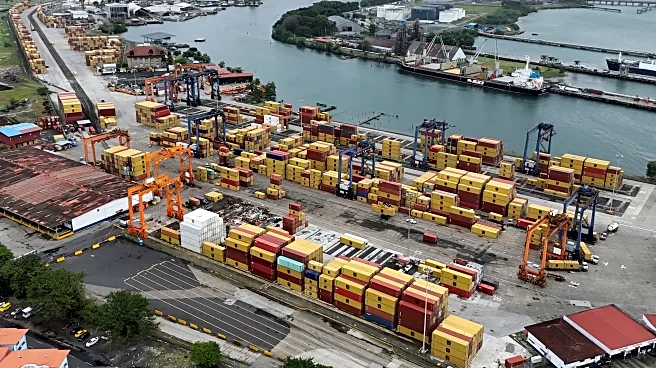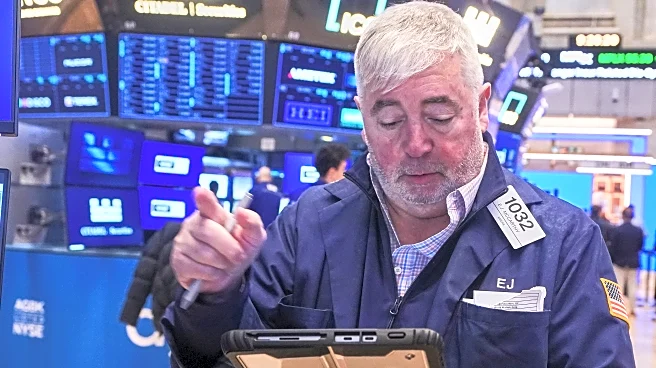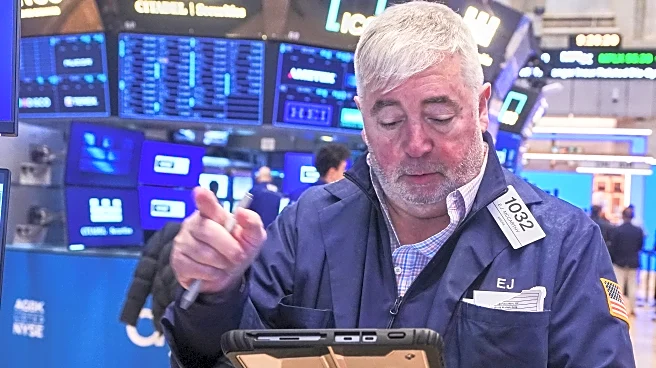What's Happening?
Vestiaire Collective, a platform specializing in second-hand fashion, has announced the sale of carbon credits as part of its strategy to highlight the environmental benefits of purchasing pre-owned clothing and accessories. The company has issued 55,000 certified carbon credits, which represent the emissions avoided when consumers opt for second-hand items instead of new ones. This initiative is both a marketing and financial move, with the revenue from the sale of these credits being reinvested into activities that enhance the platform's ability to avoid emissions, such as catalog curation and impact marketing. The carbon credits are not linked to traditional projects like reforestation but are based on the immediate emissions savings from choosing second-hand over new items.
Why It's Important?
The introduction of carbon credits by Vestiaire Collective underscores the growing importance of sustainability in the fashion industry. By quantifying the environmental impact of second-hand purchases, the company aims to provide a measurable benefit that can attract environmentally conscious consumers. This move could influence other fashion companies to adopt similar practices, potentially leading to a broader shift towards sustainable business models. However, the methodology used to calculate these credits has raised questions, as it excludes certain operational impacts such as transportation and packaging. Despite these concerns, the initiative highlights the potential for innovative approaches to sustainability in the fashion sector.
What's Next?
Vestiaire Collective's approach may prompt discussions within the fashion industry about the best practices for measuring and marketing environmental impact. As the company reinvests revenue from carbon credit sales into further emissions-avoiding activities, it could set a precedent for other businesses to follow. Stakeholders in the fashion industry, including competitors and environmental groups, may scrutinize the methodology and effectiveness of this initiative, potentially leading to refinements in how carbon credits are calculated and utilized. The success of this program could encourage more companies to explore similar strategies, contributing to a more sustainable industry overall.
Beyond the Headlines
The sale of carbon credits by Vestiaire Collective raises ethical and practical questions about the role of second-hand fashion in sustainability. While the initiative highlights the environmental benefits of pre-owned items, it also brings attention to the complexities of accurately measuring and marketing these benefits. The exclusion of certain operational impacts from the carbon credit calculations may lead to debates about transparency and accountability in sustainability claims. Additionally, the focus on second-hand fashion as a climate solution could shift consumer perceptions and drive demand for more sustainable options, potentially influencing long-term industry trends.









